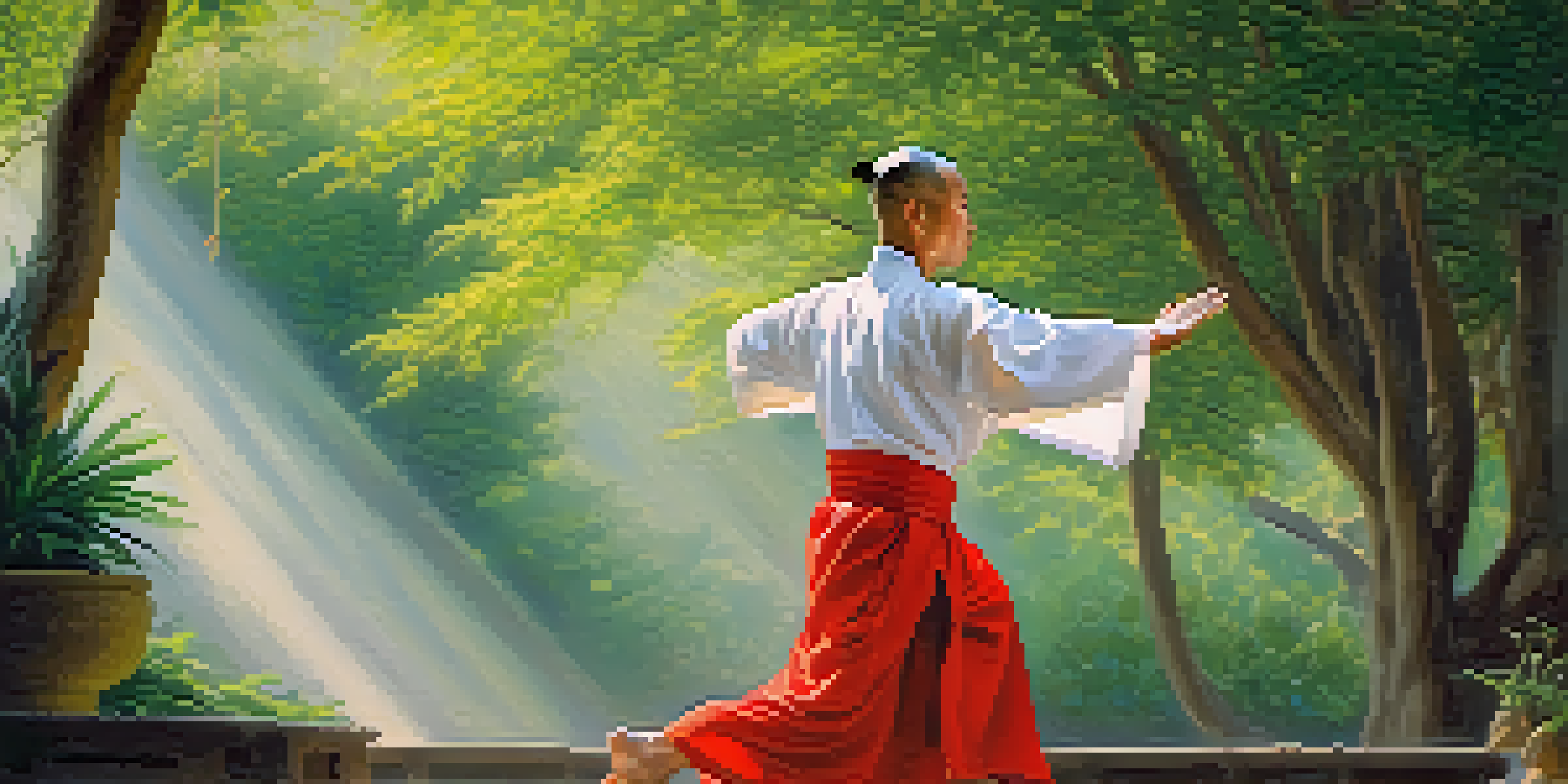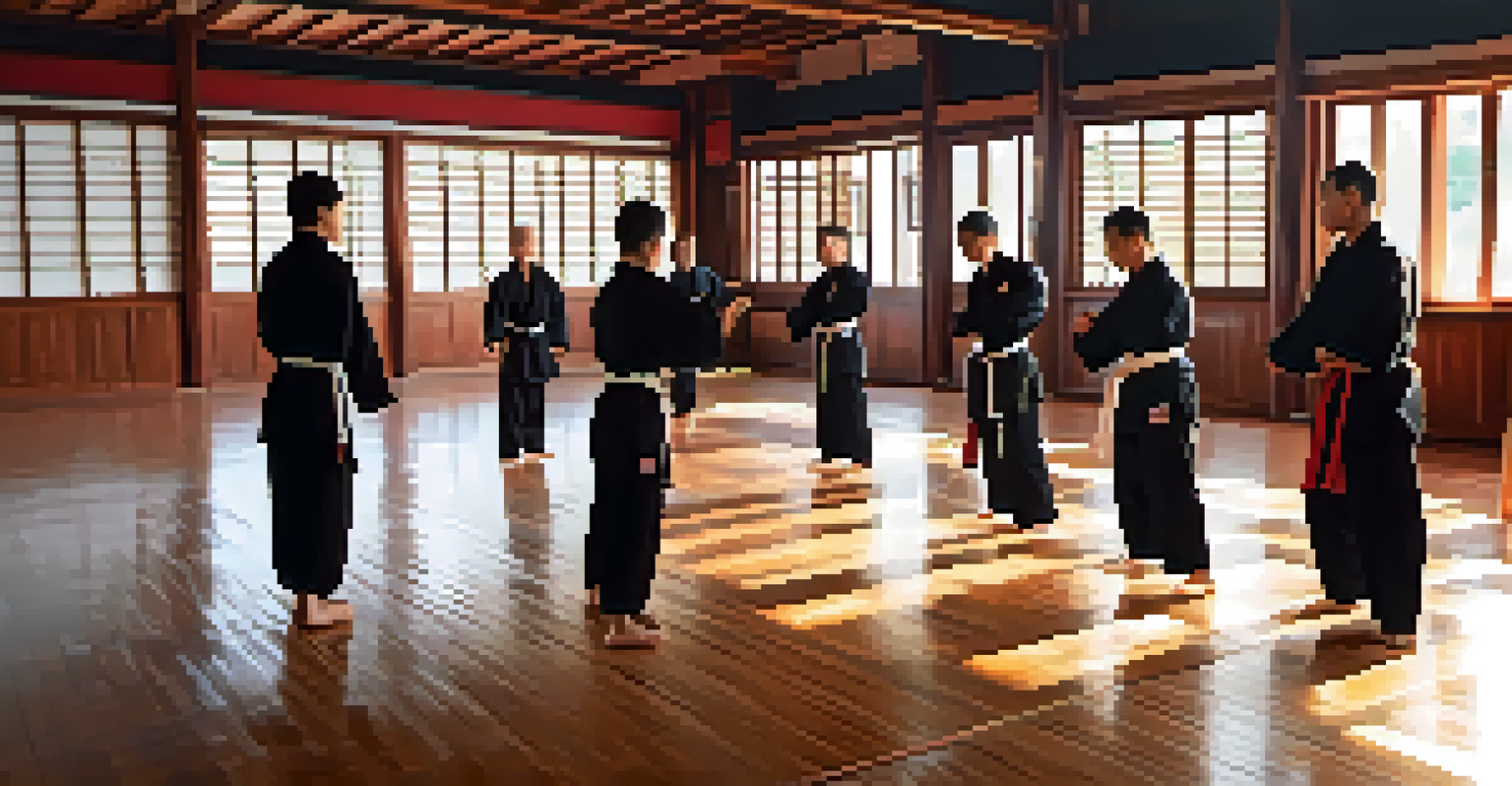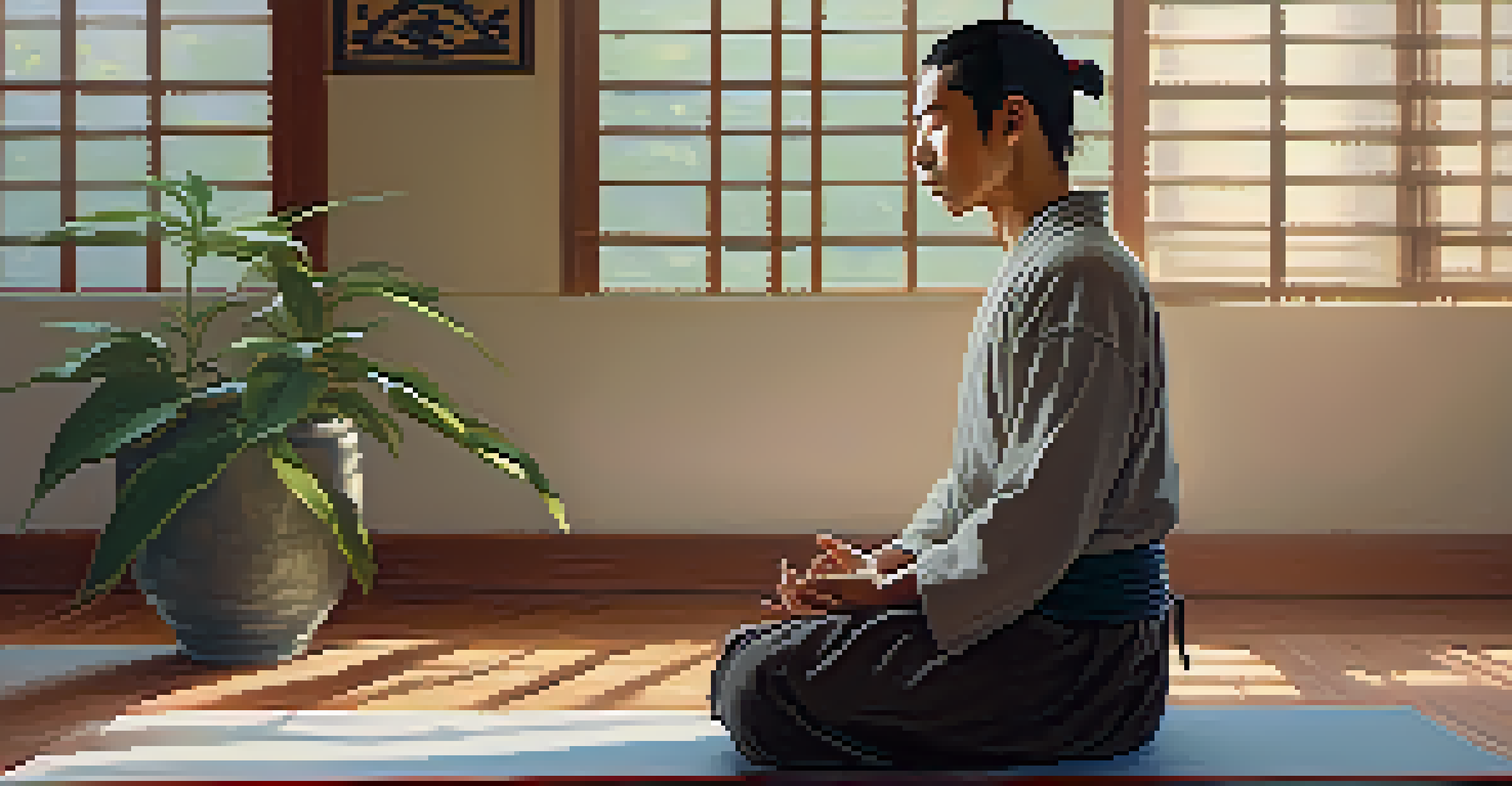How Kung Fu Combines Physical Skill with Spiritual Wisdom

Kung Fu: More Than Just Martial Arts
Kung Fu is often perceived as a form of martial arts focused solely on physical combat. However, it’s much deeper, embodying principles of self-discipline, respect, and mindfulness. The practice encourages not only physical prowess but also a spiritual journey that empowers practitioners to connect with their true selves. This duality of purpose sets Kung Fu apart from many other fighting styles.
The ultimate aim of martial arts is not having to use them.
Many students enter the dojo seeking to learn self-defense, but they often leave with an enriched understanding of themselves and the world around them. The rigorous training fosters resilience, patience, and humility—qualities that transcend the dojo. As each punch and kick is executed, a deeper lesson emerges, reinforcing the idea that mastery requires both physical and mental dedication.
In essence, Kung Fu serves as a pathway for individuals to explore their potential, bridging the gap between body and spirit. As practitioners hone their skills, they also engage in self-reflection, paving the way for personal growth. This unique combination elevates Kung Fu into a holistic practice that nurtures both the body and the mind.
The Physical Foundations of Kung Fu
At its core, Kung Fu is built upon a foundation of physical techniques that require agility, strength, and coordination. Each movement is meticulously designed to enhance the practitioner's physical capabilities, making them more adept in both martial and everyday scenarios. Training includes a variety of forms, each emphasizing different aspects of movement and body control, allowing students to develop not just muscle, but also finesse.

Moreover, Kung Fu incorporates a range of stances and postures that strengthen the body while promoting balance and flexibility. These physical exercises are not merely for show; they are integral in building the stamina and endurance needed for advanced techniques. As practitioners engage in these movements, they learn to harness their physical energy, channeling it into every strike and block.
Kung Fu: More Than Combat Skills
Kung Fu is a holistic practice that integrates physical training with spiritual growth, fostering self-discipline, respect, and mindfulness.
The rigorous physical training ultimately serves a greater purpose. It prepares the body for the challenges of combat while simultaneously teaching the practitioner to respect their limits. This awareness fosters a mindset that values physical health and well-being, creating a solid foundation for the spiritual aspects of Kung Fu to flourish.
Spiritual Growth Through Martial Arts
While the physical elements of Kung Fu are crucial, the spiritual dimensions are equally significant. Practitioners are encouraged to explore concepts such as mindfulness, focus, and inner peace. This journey often begins with meditation, a practice that helps cultivate awareness and clarity of thought. By centering their minds, practitioners can approach challenges—both on and off the mat—with a calmer demeanor.
Discipline is the bridge between goals and accomplishment.
The spiritual teachings in Kung Fu often draw from ancient philosophies, including Taoism and Buddhism, which emphasize harmony and balance. These philosophies guide practitioners in understanding their place in the universe and the importance of compassion and respect towards others. As they progress, students find that the lessons learned in the dojo resonate deeply in their daily lives, enhancing their relationships and decision-making.
This blend of physical training and spiritual insight creates a unique environment for self-discovery. As students learn to control their bodies, they simultaneously learn to control their thoughts and emotions. The result is a comprehensive growth that nurtures not only the martial artist’s skills but also their character, cultivating a sense of purpose and fulfillment.
Mindfulness and Focus in Kung Fu Practice
Mindfulness plays a vital role in Kung Fu, as it encourages practitioners to be fully present during their training. This state of awareness allows them to execute techniques with precision while also avoiding injuries. By focusing on each movement, students cultivate a deeper connection with their bodies, reinforcing the mind-body relationship essential for mastery in Kung Fu.
Practicing mindfulness also enhances concentration, which is critical in both martial arts and daily life. Students learn to tune out distractions, sharpening their senses and improving their reaction times. This heightened awareness translates into better performance in sparring sessions, where quick thinking and adaptability are crucial.
Balance in Mind and Body
The pursuit of balance in Kung Fu encourages individuals to harmonize their physical strength with emotional and mental stability.
Furthermore, incorporating mindfulness into training fosters emotional regulation. As practitioners encounter challenging situations, they learn to remain calm and composed, a skill that can be applied outside the dojo. This emphasis on mental clarity not only enhances martial arts proficiency but also enriches personal experiences, leading to a more balanced and fulfilling life.
Discipline: The Heart of Kung Fu Training
Discipline is one of the cornerstones of Kung Fu, shaping both the physical and spiritual journey of practitioners. Through consistent training, students learn the value of perseverance, pushing through challenges and setbacks. This commitment to practice instills a sense of responsibility and accountability, essential traits for any martial artist aiming for mastery.
The structured environment of Kung Fu classes teaches students to respect their teachers and peers, reinforcing the importance of humility. Each session provides opportunities to practice patience, as mastery of techniques often takes years of dedicated effort. This journey of discipline fosters a mindset that values hard work and dedication, principles that extend beyond martial arts.
Ultimately, the discipline cultivated in Kung Fu training translates into everyday life. Practitioners find that the skills learned in the dojo can help them face challenges with resilience and determination. Whether it's pursuing a career goal or managing personal relationships, the lessons of discipline remain a powerful guiding force.
Balance: The Key to Physical and Spiritual Harmony
Balance is a fundamental principle in Kung Fu, representing the equilibrium between physical strength and spiritual insight. Practitioners learn to find harmony in their movements, ensuring that each technique flows seamlessly with intention and purpose. This pursuit of balance encourages self-awareness, allowing individuals to understand their strengths and weaknesses.
In addition to physical balance, Kung Fu emphasizes emotional and mental balance. Students cultivate the ability to navigate life’s ups and downs with grace, maintaining a sense of calm in the face of adversity. This holistic approach to balance empowers practitioners to handle stress and uncertainty with confidence, creating a resilient mindset.
Life Lessons from the Dojo
The principles learned in Kung Fu translate into everyday life, enhancing resilience, adaptability, and overall well-being.
The importance of balance in Kung Fu extends beyond the individual, fostering a sense of community among practitioners. As they support each other in their journeys, they learn the value of collaboration and shared experiences. This interconnectedness nurtures a collective spirit that resonates within the dojo and beyond, reinforcing the idea that true mastery encompasses both personal growth and community support.
The Impact of Kung Fu on Daily Life
The lessons learned through Kung Fu practice extend well beyond the training mat, influencing various aspects of daily life. Practitioners often find themselves more focused and disciplined in their personal and professional endeavors. The skills developed in the dojo, such as resilience, patience, and adaptability, become invaluable tools for navigating life's challenges.
Moreover, the spiritual insights gained through Kung Fu encourage a more balanced lifestyle. As individuals learn to manage stress and cultivate mindfulness, they often experience improvements in their mental and emotional well-being. This holistic approach to life fosters healthier relationships and a greater sense of fulfillment.

Ultimately, the impact of Kung Fu is profound, shaping not only the physical abilities of practitioners but also their character and outlook on life. As they integrate these teachings into their daily routines, they embody the principles of Kung Fu, inspiring others in their communities. This ripple effect underscores the beauty of Kung Fu as a transformative practice, blending physical skill with spiritual wisdom.